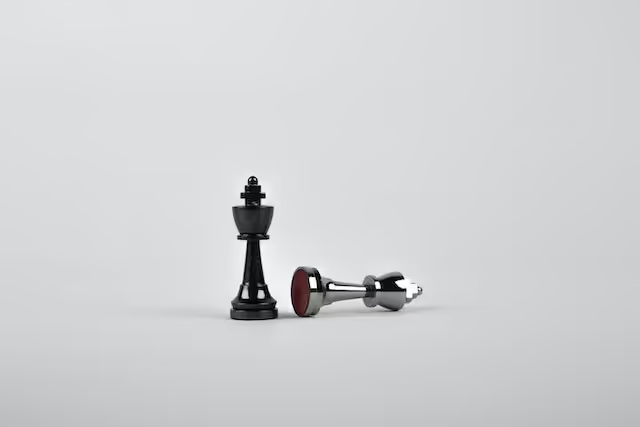
Blog
Does Money Make You Happy? What the Research Says
The pursuit of happiness: is your financial GPS pointing in the right direction?
There's a well-worn phrase that has been repeated by countless philosophers, poets, and cash-strapped uncles throughout history: "Money can't buy happiness."
It's a comforting thought, a platitude that suggests true fulfilment lies in things beyond the reach of a bank account. And to an extent, it’s true. The most meaningful moments in life, (a child's laugh, a walk in nature, the embrace of a loved one), are priceless. You can’t exactly pay for a "good relationships" package on Amazon or Trade Me, after all.
For decades, even academic research seemed to support this, with a widely publicised 2010 study from Princeton University suggesting that happiness plateaus at an annual income of around US$75,000. The consensus became: get to that income level, and any extra money won’t really make you any happier. A cheeky thought from someone who hasn’t hit that milestone might be,
“Well, let’s get me to US$75k first, and then we’ll see about the happiness!”
But for many, this concept provided an intellectual excuse to stop striving for more.
However, recent research is challenging that long-held belief. Newer, in-depth studies are painting a more nuanced and, dare we say, empowering picture of the relationship between money and happiness.
Let’s explore how you can take control of your financial destiny and, in doing so, build a life rich in both wealth and well-being.
The Misguided Myth of the Happiness Plateau
The idea that there's a specific income ceiling for happiness, be it $75,000 or any other arbitrary number, has always felt a little... flat. It’s like saying you can only get so fit, and after that, every squat is just pointless. New research, particularly a groundbreaking study published in the PNAS by psychologist Matthew Killingsworth of the University of Pennsylvania, has shown that for most people, happiness continues to rise steadily with income, even far beyond the old US$75,000 benchmark.
Killingsworth’s work, which was part of an "adversarial collaboration" to reconcile his findings with the older Princeton study, used a smartphone app to track the real-time emotional well-being of thousands of people. The results were clear: for most people, bigger incomes were associated with greater happiness. In fact, for the happiest 30% of the population, the link between money and happiness accelerated once they earned over US$100,000.
This research, which was also highlighted in reputable publications like Bloomberg, debunks the old idea that money only helps you up to a point. Instead, it suggests that the benefits of financial security are continuous. Having more money doesn't just relieve stress; it can provide a greater sense of control, purpose, and the freedom to pursue the things that truly matter. It allows you to shift from a mindset of scarcity to one of possibility.
Money as a Tool for Freedom and Control
This is the core of the matter.
Money doesn't magically inject dopamine into your brain. What it does is buy something far more valuable and lasting: freedom.
Freedom to quit a job you hate.
Freedom to spend more time with your family.
Freedom to travel, to learn a new skill, to start a business, or to simply relax without the looming anxiety of unpaid bills.
This isn't about buying a bigger television or a flashier car (though if that's your thing, you've earned it!). It's about buying time, options, and peace of mind. As the legendary investor and wealth-building guru Warren Buffett once put it, "The best investment you can make is an investment in yourself." He’s a billionaire who still lives in the same modest house he bought in 1958, but he spends his wealth on the things that matter to him most: buying freedom to do what he loves and to learn constantly.
Used wisely, money can be the ultimate "get out of jail free" card in the game of life.
It gives you the ability to make decisions based on what's best for your long-term happiness, not what’s dictated by your financial limitations. This concept is a cornerstone of financial independence.
What Money Can and Can’t Do
Money can buy comfort, security, and options.
It cannot buy genuine relationships, purpose, or inner peace. Think of money as the icing on the cake… not the cake itself. And let’s be honest, who wants a cake made entirely of icing?
The Power of Spending on Experiences and Others
While money can bring great joy, it's not simply about having more of it. It's about how you use it. A key finding from a Harvard Business School study on "Time, Money, and Happiness" reveals that people get more happiness from spending money on experiences rather than possessions. That fancy watch might provide a fleeting thrill, but a trip to the beach with loved ones, a cooking class, or a thrilling hike creates lasting memories.
Even better, spending money on others can provide a profound sense of satisfaction. Whether it's a gift for a friend, a donation to a charity you believe in, or shouting a round of drinks, using money to enrich the lives of others taps into our fundamental human need for connection and community. This aligns perfectly with the research from the long-running Harvard Study of Adult Development, which has found that strong relationships are the number one predictor of a long and happy life.
Money can’t buy those relationships, but it can certainly provide the means and the time to nurture them.
Related material:
- Stay together, protect your wallet
- The middle class are getting smashed
- Swedish death cleaning for the digital age
- Financial red flags to watch for in your partner
- Don’t save money
- Should you move to Australia?
- Why am I not wealthy?
Money and Happiness Across Life Stages
From the fresh-out-of-university graduate to the seasoned retiree, money can play markedly different roles in our lives.
In your twenties, a bit of extra cash can mean freedom from flatting in a cupboard and buying actual groceries, not just noodles. In your forties and fifties, financial happiness often looks like security for your family, choice, and peace of mind you’re on the right track. Later in life, it might mean the ability to live on your terms with dignity, comfort, and maybe a few rounds of golf.
The Bottom Line: Money and The Pursuit of Happiness
So, does money make you happy? The answer, it seems, is a resounding and qualified “yes.” Money, in and of itself, is just paper and numbers on a screen. But when you acquire it with purpose and use it intentionally, it becomes a powerful tool. It buys you freedom, it buys you choices, and it buys you the time to invest in the relationships and experiences that will truly make your life richer, in every sense of the word.
At Become Wealth, we're not in the business of selling happiness. We're in the business of helping you build the financial foundation for a life of purpose and freedom.
Ready to start building your lifestyle of financial freedom? Get in touch with our team for a no-obligation chat.
You may also like:

Stocks vs Real Estate: Which Is Better?

What Is a Midlife Crisis? And What to Do Next


